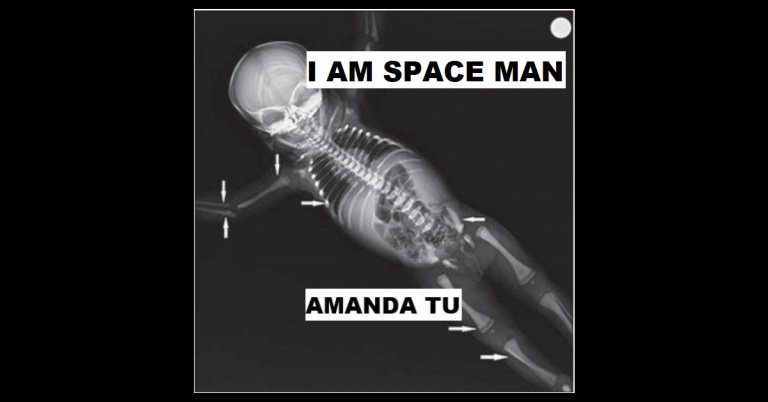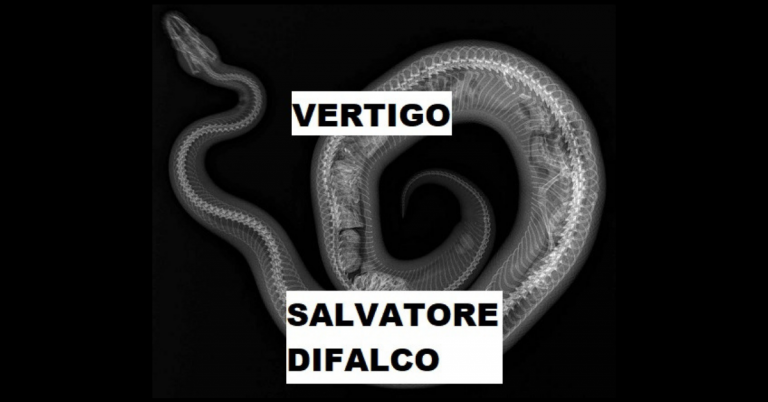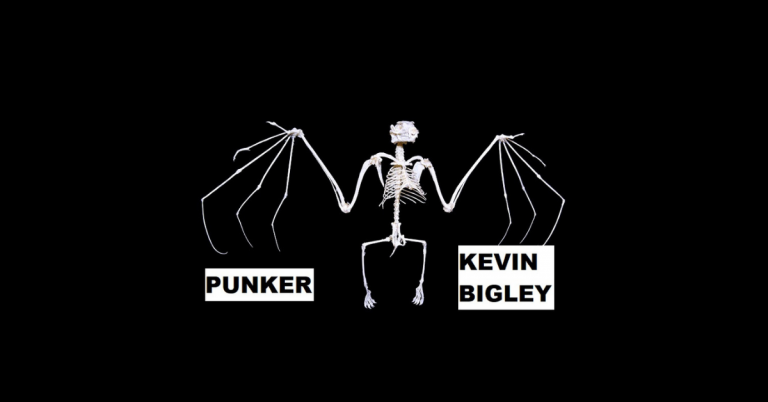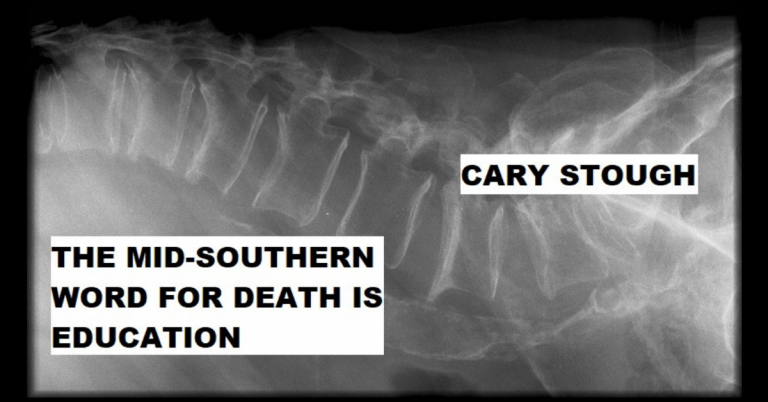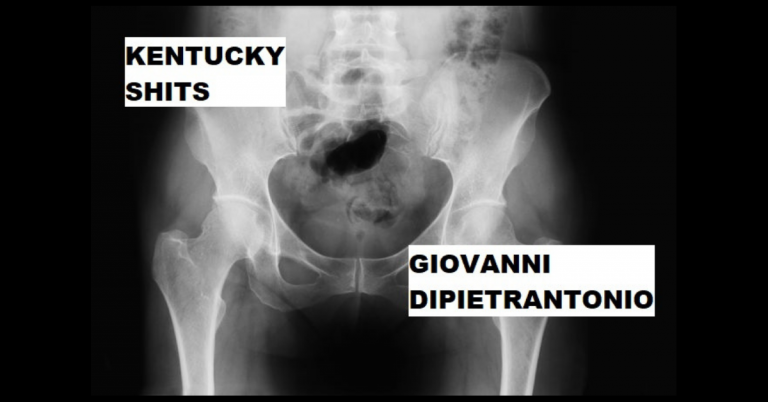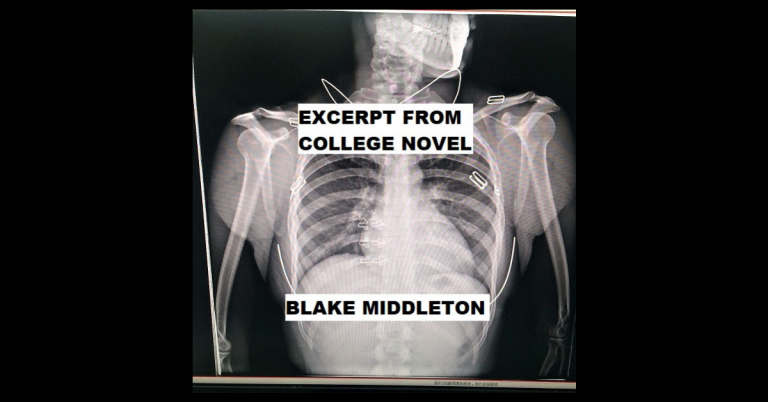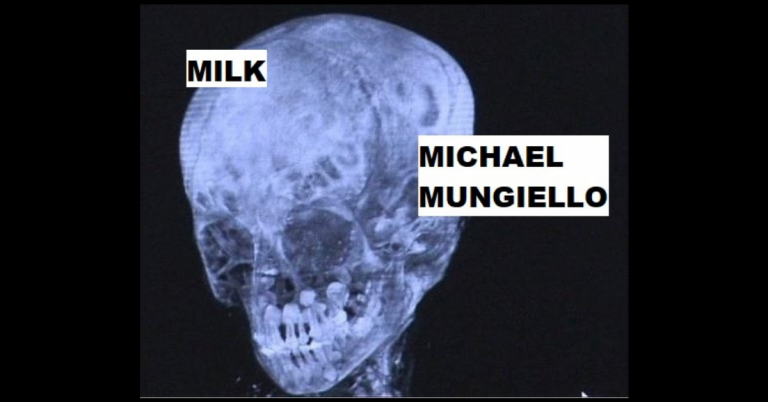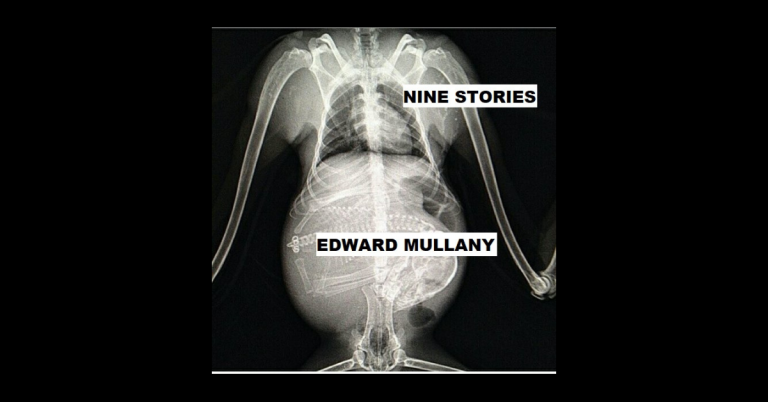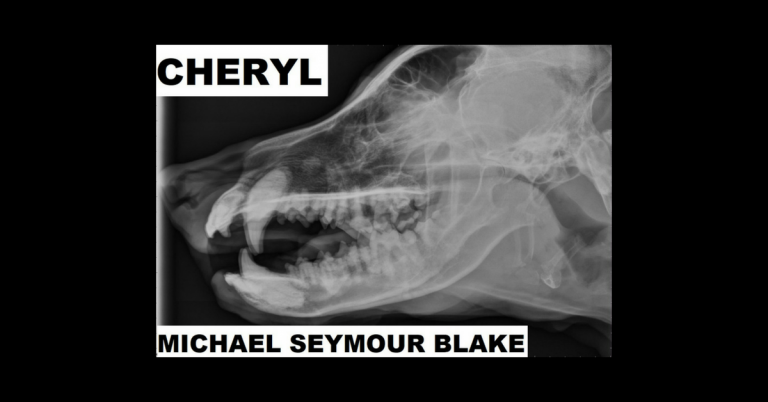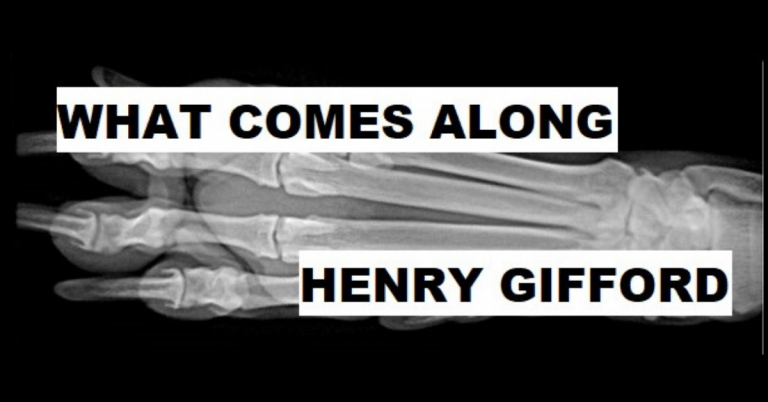
WHAT COMES ALONG by Henry Gifford
An arachnid in the corner carefully traipses through the crack, under where the baseboard just fails to meet the worn and oaky floor. He weaves himself, and step by step by step times eight he finds himself new diversions: a knot in the hidden wood or a crumb that’s been swept into his corner by the fat old man who comes and goes every morning and night and sleeps on the thin bed that doesn’t quite carry him. With these he can make a day last longer or shorter, go faster or slower, all depending on what he wants. He does not want the day to choose its length.
There is no more family for the spider. He finds this funny, and sometimes laughs about it. He webbed them all up one day in their sleeps, and though they resisted, first by pulling then by biting then by a linguistic attempt, fruitless without their six spinnerets and their lovely thread, though they resisted in these three ways, our corner arachnid relentless did nothing, and only laughed at them. Now they are mildewing, rotten, and covered in cobweb. He is getting old, like the man, and thin, though every crawler that comes creaturing into his web is his for the eating. He grows, he grows, he grows thinner and thinner.
The old fat man has never had a woman with tits in his room. The spider would like to see tits, he thinks. Sometimes the old fat man goes out in the morning determined to meet a woman, a nice supple one with the tits of an actress, the spider can tell because the man says a thing like today today I’ll have my way, in fact makes songs of them. But then he comes back at night with his penis still trying and failing to harden, not even nearly succeeding, he has not even nearly succeeded, and he noodles his noodle for the night and then goes to sleep with the thing hanging out, the limp old wrinkly.
But when the old man goes out the spider does something peculiar that he does every morning when the old man goes out. He hears for the click of the door and the click of the key – click, exhausted suspiration, singular silence, click — and then skitters out frantically, seeing the light of day from the window that opens into the courtyard the man has not even yet reached. He is still walking down the four flights of stairs, down four, three, two, one, the click of the door, the click of the key, the man bursts into the courtyard into which the light liquidly pours and reflects off the front and then into the man and the spider’s house. By the time the old fat man, who has jowls, has reached the courtyard’s front step, our spider has stopped his skittering, has made his way to the cater-cornered corner, leaping over the gaps between the dry sheets of wood or fording them, refusing to nestle or drown in their depths, and crawling right out, depending on their size and his particular feeling.
Then he is at the opposite corner from where he lives, where his family doesn’t, and he begins to skitter-scurry up the old paint-thickened wall to the cornice, which is the old fat man’s favorite thing about the room. And there at the tip of the cornice, where one of its horizontals meets another, the corner arachnid, who feels no more guilt for the good old filicides than he does for not eating their dinners, it had to be done, you see, he is, after all, a filthy spider, there, at the corner of the cornice, he lets himself fly.
No — he does not jump, though he feels for a solitary moment that the air is the only thing keeping him groundless. He splays his legs, but his instincts always and do now get the better of him. His old and functional spinners do spin their thread the moment he drops from the out-jutting ledge, so that he has only a second of freedom from contact with anything, only one measly jumping second where he is finally, truly alone. Then he feels it tauten and he is dangling.
The reason for all this is really to dangle, to dangle very specifically. This way he calls warding off the fatness. Like the fat old man he does not want to be fat. So every day he weighs himself in this manner, by jumping from the cornice, by feeling himself free, and then by dangling. He releases more thread and more thread until he can see through his eyes the top of the bedframe, which maybe, he has to admit to himself, has changed its height over time as well, with seasonal swelling and an old fat man’s weight, but it’s surely not such a significant change. There he lets himself stay, in any case, directly across from the top of the bedframe, and then he gives himself a bounce, and however much further he goes, well that’s how fat he is. Today he is not so fat. He has not eaten for a week.
The spider is proud of himself, he has dangled so high that his hunger strike must have gone well, yes, he must look really weak and unpleasant now. He must look awfully frightening. He does not, because the fatter the spider the more frightening, it seems, a thick old body on thin legs, that’s where the fear comes from. He looks now more like something to be flicked away than smushed, and to be flicked is a not very pleasant thing. Sometimes it means even death, as it did once for the corner arachnid’s poor mother, and sometimes it means only divorce from everything and, pity, no time to prepare for or appreciate it. The spider does not know what makes a man want to flick, though, and he has seen thin spiders before, and found them distasteful, and he wants to be thin and distasteful and frightening, just like the others. He wants to walk on water, with only the tips of his legs dipping under the tensile surface.
He raises himself, zips himself up, brings himself back to the cornice, around which he crawls, this time he may as well stay at the top, instead of racing across the bottom of the floor, with all those gashes gaps and knots and cavities, he likes the ceiling and the cornice, the vantage point and the smooth bevels, which the years have not aged even nearly as much, in fact it was the fat old man who had the cornices installed, they did not come with the apartment, why would they have, the place is old but not that kind of old. He liked something to look at, to run his eyes over.
The spider scurries four legs after the others, step by step by step and so on, across the smooth new wood, and comes to a conclusion in the cater-cornered corner to where he once was, to where he jumped and spun his thread. He crawls down the not-so-nice knobbly plaster wall that he’s climbed up before, and doesn’t lose his grip or his balance, oh no, he continues on down with a firmness and surety. He is a very talented spider, though he is thin and old and when at the bottom, when he crawls back under the baseboard crack, his family looks tucked into bed. Despite all that he is very good at being a spider.
The spider has been waiting and sleeping and even a little bit starting to worry, yes, he’s even starting to worry that the man won’t come back. The bed will go, though not the mattress, and the desk will go as well, and that’ll be the end of it, an empty room will stand where the spider can still skitter, and he’ll still be able to go up to the cornice, but he won’t be able to dangle there, will he? No, because there won’t be a bedframe anymore, those damned parasites will have taken it.
Well, he has come back, and the spider hasn’t heard him this time, and the spider doesn’t know to scurry back under the baseboard. He doesn’t hear the click silence click or its next iteration; he doesn’t hear the piss or the flush, he doesn’t hear anything at all, he’s fast asleep, the poor spider is, but he does hear when the man says EH? over the bed, seeing this nasty spider, this murderous nasty hungry fat thin spider, this won’t do it all, no, and he’s on his bed, this is the same damn spider that skitters across the floor, isn’t it, teach him a lesson, and the spider’s too thin to be smushed, so here he goes, the spider’s awake, he lifts his finger, he curls his finger, he brings his finger down to where the spider sits and quakes in his final fear, he flicks.
And he knew, the arachnid in the corner, he knew from day one that one day he’d be flicked. He’d always known, and by the fat old man? So be it. That’s just fine. He knew one day in the end he’d be flicked, and you can’t prepare for a flick better than he’d prepared, so let him go loose, the spider flies. The air bears him aloft, he cannot shoot, he will not spin his thread. The ground is so far away from him now. The ceiling is so far away. Every wall is so far away and the spider, for just a fraction of a fraction, is in the center of the room. He sees from his eight half-blind eyes that the walls are nowhere near him. The cornices are so far away, and so is the baseboard, his family, and was this how his mother felt? It is how he feels right now. He feels that he has nothing tightening round him, that he is in this fraction alone. Then down he comes, to the floor he goes, but it’s okay, there’s nothing to be done. He doesn’t want to touch the floor, but it’s too late now. He touches the floor, he hits the floor, the floor with its gaps and knots is a weight on his body, the spider flattens-squashens, and finally, after all of that being alone, the spider, forgotten already, is dead.

